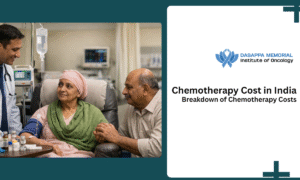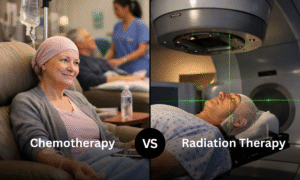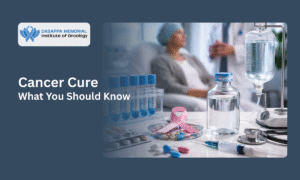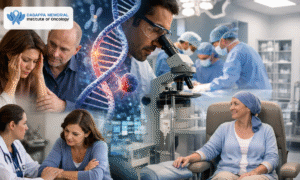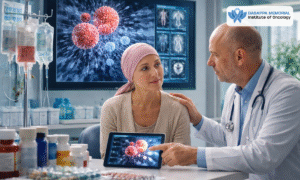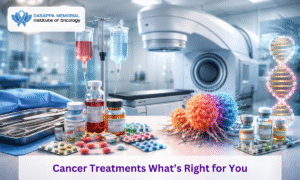Early detection of cancer is one of the most powerful ways to save lives and reduce the impact of the disease. Cancer, when caught in its earliest stages, is often far more treatable, and patients usually respond better to therapy. In fact, many forms of cancer that are life-threatening in later stages can be successfully managed or even cured if diagnosed early.
At our cancer hospital in Bangalore, we witness daily how timely diagnosis transforms treatment outcomes. It not only reduces the intensity of treatment but also gives patients the strength and confidence to fight back.
But what exactly makes early detection so important? And how can you identify those subtle signs before they become life-threatening? Let’s explore further. You might be surprised by what we uncover.
Why Early Detection Matters
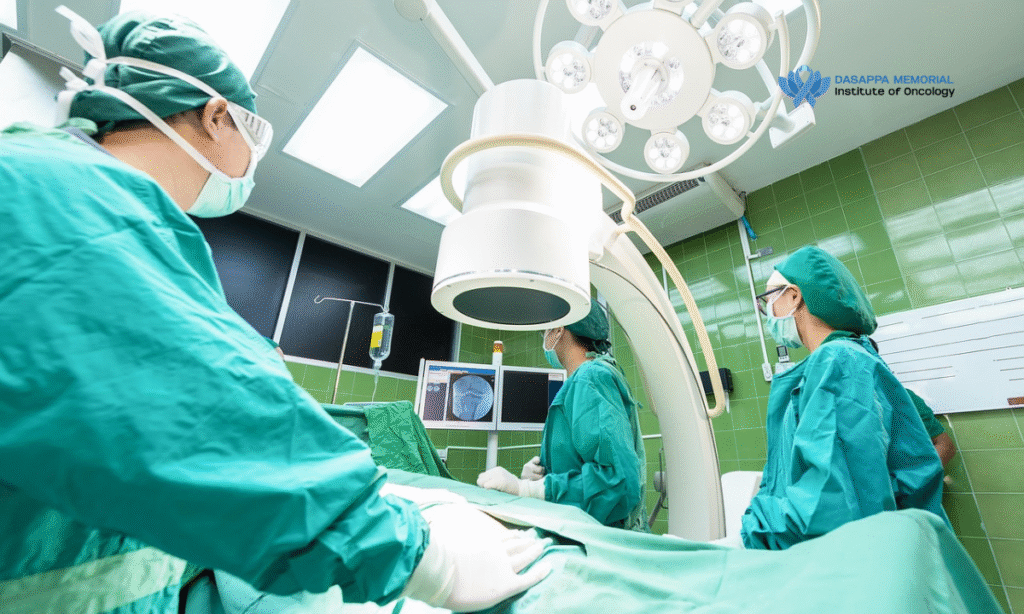
Cancer begins with abnormal cell growth. If not controlled, these cells multiply and spread, damaging tissues and organs. When cancer is diagnosed late, it has often spread (metastasized), making treatment more complex.
Early detection matters because:
- It improves treatment success rates.
- It allows for less invasive treatments.
- It significantly lowers healthcare costs.
- It improves the overall quality of life.
For example, breast cancer detected through a routine mammogram may only need minor surgery and local treatment. But if detected late, it may require aggressive chemotherapy, surgery, and radiation.
Role of Cancer Screening
Cancer screening plays a key role in saving lives. These are medical tests that help identify cancer before any major symptoms appear.
Some widely used screening methods include:
| Screening Test | Cancer Detected | Recommended Age/Group |
| Mammogram | Breast Cancer | Women 40+ years |
| Pap Smear | Cervical Cancer | Women 21–65 years |
| Colonoscopy | Colon Cancer | Adults 45+ years |
| Low-Dose CT Scan | Lung Cancer | Smokers/ex-smokers 50+ years |
| PSA Blood Test | Prostate Cancer | Men 50+ years |
Screenings are especially important if you have a family history of cancer, since genetics plays a strong role in risk.
Cancer Symptoms by Stage
Understanding cancer symptoms by stage helps people seek medical care before it’s too late.
| Stage | Symptoms You May Notice |
| Stage 1 (Early) | Mild fatigue, unexplained lumps, minor skin changes, chronic cough |
| Stage 2 | Noticeable weight loss, localized pain, swelling, long-term indigestion |
| Stage 3 | Severe fatigue, bleeding, breathing problems, organ discomfort |
| Stage 4 (Advanced) | Organ failure, severe pain, recurring infections, significant weight loss |
The earlier the stage, the easier the treatment.
Early vs Late Cancer Symptoms
Early symptoms are often subtle and easy to miss:
- A persistent cough.
- Small lump or swelling.
- Indigestion or bloating.
- Slight weight loss.
- Changes in skin or moles.
Late symptoms are harder to ignore:
- Severe pain.
- Constant bleeding.
- Extreme fatigue.
- Unexplained fractures.
- Difficulty breathing or swallowing.
This is why regular health check-ups are vital, even if you feel healthy.
How Early Detection Helps Patients
At the halfway point, it’s worth emphasizing how powerful early detection can be. At our cancer hospital in Bangalore, we have seen:
- Patients are recovering faster with shorter treatments.
- Avoidance of aggressive procedures like full organ removal.
- Reduced side effects of chemotherapy and radiation.
- Greater survival rates, sometimes doubling or tripling chances.
- Better emotional resilience, since patients feel hopeful.
Take the example of gastrointestinal cancers. If detected during routine endoscopy, small growths can be removed easily. But once advanced, surgery and lifelong therapies may be required.
Cancer Prevention
While not all cancers can be prevented, many can be delayed or reduced with healthy habits. Prevention is always better than a cure.
Lifestyle Tips for Prevention:
- Quit smoking – lowers risk of lung, throat, and bladder cancers.
- Eat more fruits and vegetables – packed with antioxidants that fight cell damage.
- Exercise regularly – it keeps weight in check and improves immunity.
- Limit alcohol – reduces risk of liver and breast cancers.
- Get vaccinated – HPV and Hepatitis B vaccines protect against certain cancers.
- Reduce stress – chronic stress weakens the immune system.
Small changes today can have a big impact tomorrow.
Tips to Stay Alert
- Don’t skip annual check-ups.
- Know your family history.
- Report persistent symptoms, no matter how small.
- Follow recommended screening guidelines.
- Prioritize healthy living with balanced meals, exercise, and stress control.
Your body often whispers before it screams; listen to those whispers.
Final Thoughts
The importance of early detection of cancer lies in saving lives, preventing suffering, and improving treatment outcomes. It helps us fight the disease with strength and confidence.
At Dasappa Cancer Hospital, recognized as the best cancer hospital in Bangalore, we are committed to providing advanced diagnostics and compassionate care so patients never lose valuable time.
Remember: cancer detected early is often cancer defeated. Stay alert, get screened, and choose health today for a better tomorrow.
FAQs on Early Detection of Cancer
1. Does early detection of cancer save lives?
Yes, early detection significantly increases survival rates. It allows treatment before the disease spreads, improving the effectiveness of therapies and reducing complications.
2. How does your life change after being diagnosed with cancer?
A diagnosis may bring lifestyle changes, medical treatments, and emotional adjustments. With proper care and support, many people live long, fulfilling lives even after diagnosis.
3. What are the benefits of early detection?
It reduces treatment intensity, saves costs, improves recovery chances, and offers more treatment options. It also helps patients maintain a better quality of life.
4. Is cancer curable if detected early?
Yes, many cancers can be cured if caught early. For example, cervical, thyroid, and some skin cancers have very high survival rates with timely diagnosis.
5. Which cancer has the highest survival rate?
Thyroid cancer, testicular cancer, and certain skin cancers have the highest survival rates, especially when diagnosed early through screening.
6. What should I do if I notice unusual symptoms?
Never ignore persistent changes in your body. Consult a doctor immediately and request screening tests. Early consultation often makes treatment simpler and more effective.


